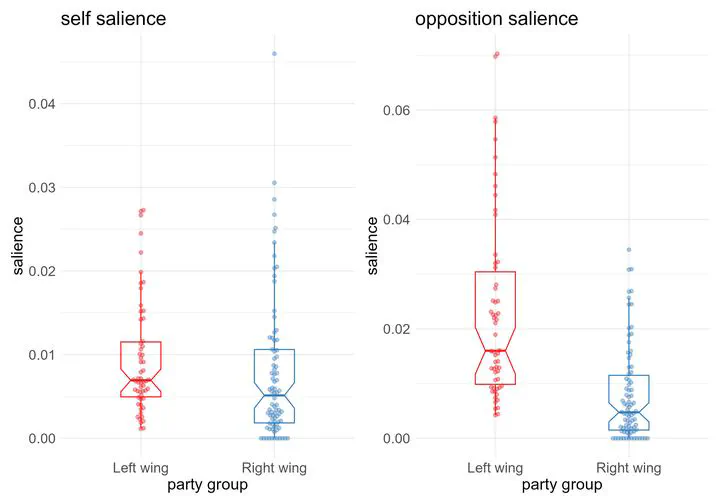Parliamentary Discourse about the Left and Right in a Postcommunist Context: The Czech case

Abstract
w/ Vojtěch Pohanka, Jan Vondráček and Tomáš Kremla. How does political discourse about ideology develop in postcommunist countries? In this paper, we examine how MPs in the Czech Republic discuss terms related to the left and right. We specifically focus on the theoretical expectation that parliamentary debates should exhibit a right-wing bias in the post-transition era, with the left being discussed in comparatively more negative terms. Using a novel dataset of plenary speeches from the Czech Chamber of Deputies from 1993 to 2023, we construct vocabularies to capture mentions of the left and right and then measure their salience and sentiment over time and across parties. Building on an emerging literature on sentiment analysis, we differentiate between stance and emotional valence and focus on the latter. In contrast to our expectations, we find that, overall, the left and right are talked about equally negatively. Moreover, left-wing parties may opt for more confrontational strategies in debates about ideology compared to the right. We further find evidence suggesting that the salience and sentiment about the left and right are associated with various economic and political exogenous factors. In particular, these results suggest that the discourse about the right is receptive to political cycles, while discourse about the left is less volatile but getting more negative over time. Overall, we contribute to the existing research on the antileft bias in postcommunist politics by extending the focus to parliamentary discourse. Presented at COMPTEXT 2025, Vienna
Type